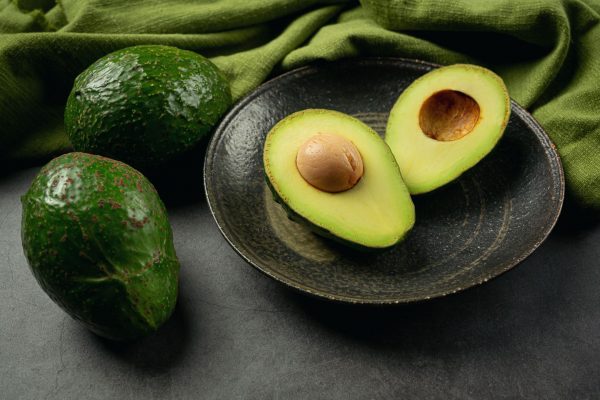Avocados are one of my favorite foods, and not just because they taste good and are easy to add to my meals.
Like olives, avocados are considered a super food. They are high in fiber, monounsaturated fats, vitamin A and vitamin E. Both of these fruits also have a high content of two powerful antioxidants, lutein and zeaxanthin – two powerful eye nutrients.
But when it comes to other certain other vitamins and minerals, the avocado actually outshines the olive. This is good news for you, especially if you like avocados as much as I do.
Now, here’s the thing about avocados. They have a high fat content, so most people thinking eating these fruits will make them fat.
That’s not necessarily true.
In fact, the monounsaturated fats (MUFAs) found in avocados (and in the Mediterranean way of eating) may help protect against fat – especially abdominal fat accumulation associated diabetes.
You see, eating an American-style diet rich in carbohydrates is directly linked to the accumulation of abdominal fat. But just the opposite is true of a MUFA-rich diet. Eating foods high in monounsaturated fats, like avocados, actually prevents the distribution of fat to your belly.
So that’s one point in favor of getting more avocados in your diet. But there’s more…
🥑Avocados are Great for Your Blood Sugar and Weight!
Eating just half of an avocado with your lunch can improve insulin response and lower your blood sugar. These are two of the biggest factors when it comes to storing – or not storing – fat.
When insulin response is poor and blood sugar is high, your cells store extra glucose as fat. But when your blood sugar and insulin response are normal, glucose doesn’t need to be stored as fat. That’s because it’s used for energy, instead.
Additionally, the monounsaturated fats in avocados have an influence on the hormone that tells you you’re full. It works so well that, after eating just half of an avocado, it can reduce your desire to eat by about 40% over the next three to five hours.
Now, it’s pretty common knowledge these days that being overweight increases your risk of heart disease. Diabetes – or insulin resistance – is also associated with a higher chance that heart problems will strike at some point in your life.
❤️Try an Avocado for Your Heart and Brain
Eating a single avocado each day can improve your cholesterol profile much better than eating a low-fat diet. It doesn’t just lower LDL cholesterol. It also reduces actual number of LDL particles along with the number of small dense particles.
These results are similar to those seen in people eating a Mediterranean style diet. And it’s great news for your heart health.
Getting those small, dense particles under control is especially important. These are the ones that tend to slip through the lining of your blood vessels where they can do the most damage. They become oxidized. Inflammation sets in. Plaque starts accumulating and blockages begin to develop. So the bigger and fluffier your LDL particles are, the better off your heart will be.
And, of course, the cardiovascular improvements that come with avocado intake also have a favorable impact on cognitive health. When adults 60 years and older took cognitive tests, those who regularly consumed avocado had the highest scores across all of the tests.
This gives you three great reasons to eat more avocados. They can help you lose weight, improve blood sugar and insulin resistance, and help protect your heart health.
🥗How You Can Get the Biggest Health Benefits
I think avocados should be included in the Mediterranean diet. Just imagine the results!
The Mediterranean way of eating already reduces risk factors for stroke and heart attack. It improves circulation, counters obesity and slashes diabetes. By adding avocado into the mix, the results of eating like a Mediterranean could be even more astounding than they already are. It could potentially amplify the results!
There are many ways to get more avocados in your diet, and not all of them include eating a salad or guacamole.
You can top your broiled fish with chopped avocado, onion and bell peppers just before serving. Dice some up and use it as a topping for your egg scramble. Use avocado in wraps, add it to your smoothies, grill it or eat it right out of the peel.
Get creative, and you’ll find all sorts of ways to become an avocado connoisseur in no time at all. Your waistline, your heart, and even your brain will thank you.
SOURCES:
Senn MK, Goodarzi MO, Ramesh G, Allison MA, Graff M, Young KL, Talavera GA, McClain AC, Garcia TP, Rotter JI, Wood AC. Associations between avocado intake and measures of glucose and insulin homeostasis in Hispanic individuals with and without type 2 diabetes: Results from the Hispanic Community Health Study/Study of Latinos (HCHS/SOL). Nutr Metab Cardiovasc Dis. 2023 Dec;33(12):2428-2439.
Wien M, Haddad E, Oda K, Sabaté J A randomized 3×3 crossover study to evaluate the effect of Hass avocado intake on post-ingestive satiety, glucose and insulin levels, and subsequent energy intake in overweight adults. Nutr J. 2013 Nov 27;12:155.
Pacheco LS, Li Y, Rimm EB, Manson JE, Sun Q, Rexrode K, Hu FB, Guasch‐Ferré M. Avocado Consumption and Risk of Cardiovascular Disease in US Adults. J. Am. Heart Assoc. 2022;11:e024014.
Wang L, Bordi PL, Fleming JA, Hill AM, Kris-Etherton PM. Effect of a moderate fat diet with and without avocados on lipoprotein particle number, size and subclasses in overweight and obese adults: a randomized, controlled trial. J Am Heart Assoc. 2015 Jan 7;4(1):e001355.
Fleming SA, Paul TL, Fleming RAF, Ventura AK, McCrory MA, Whisner CM, Spagnuolo PA, Dye L, Kraft J, Ford NA. Exploring avocado consumption and health: a scoping review and evidence map. Front Nutr. 2025 Feb 10;12:1488907.
Cheng FW, Ford NA, Taylor MK. US Older Adults That Consume Avocado or Guacamole Have Better Cognition Than Non-consumers: National Health and Nutrition Examination Survey 2011-2014. Front Nutr. 2021 Oct 14;8:746453.



